In 1965, a 26-year-old was tasked with building LABC’s athletic department from the ground up. He never balked at the challenge — or the hard work that accompanied it.
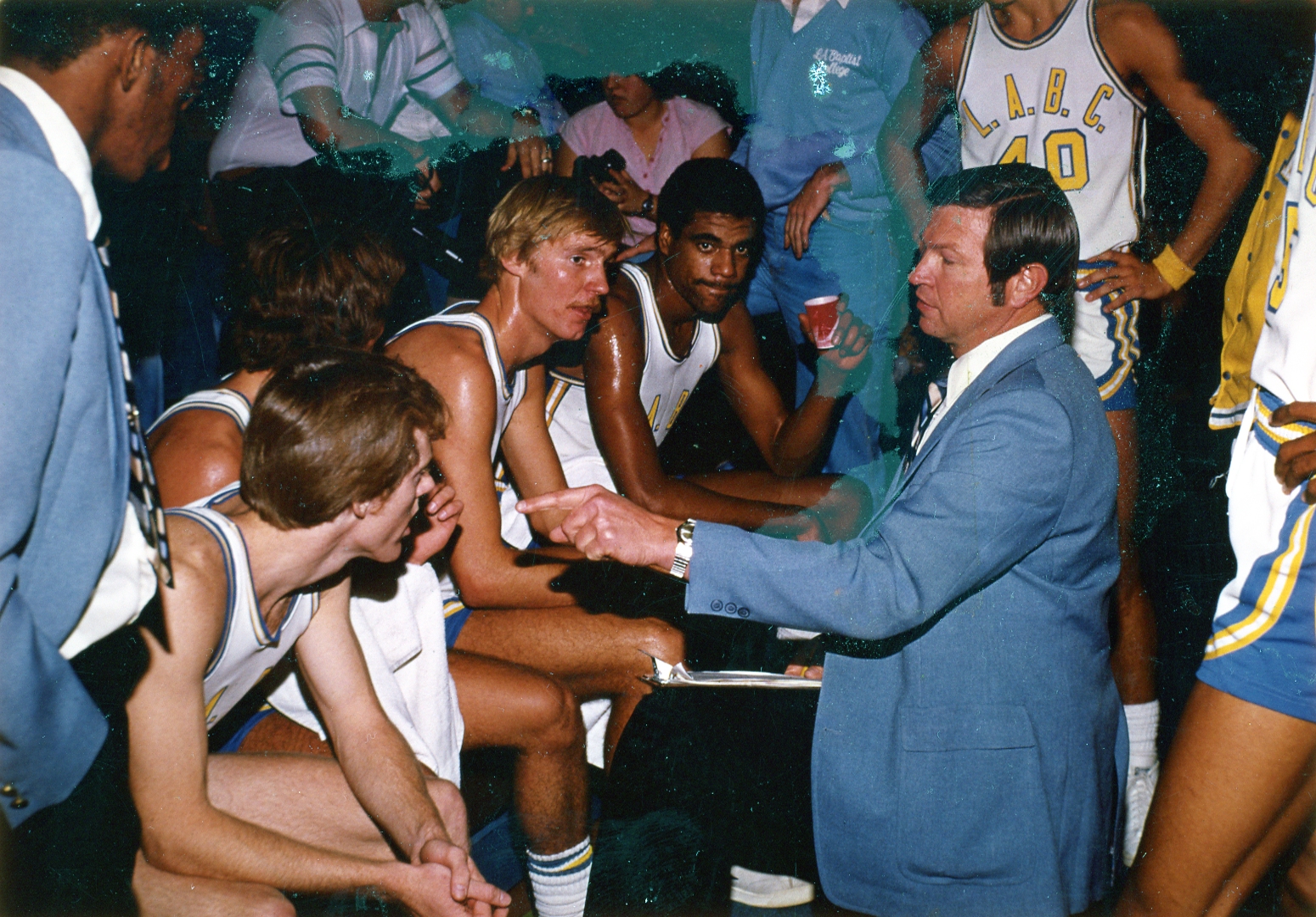
Reese won more than 200 games as head men’s basketball coach at LABC.
Editor’s note: The Master’s University (previously Los Angeles Baptist College) is nearing its 100th year as an institution. As we approach the milestone in 2027, this is the first in a series of stories about men and women used mightily by the Lord in our history.
These days, you’ll find Pete Reese in southwestern Ohio. More than likely, if the weather cooperates, he’s riding a John Deere tractor, pulling a lawn mower attachment at a slow, steady clip.
Reese is nearly 85.
After serving as athletic director of Los Angeles Baptist College from 1965 to 1985, he returned to his native Ohio, working at Cedarville University until officially retiring six years ago. Now he volunteers there, cutting large swaths of grass for up to 40 hours each week.
“I have a cemetery plot adjacent to where I mow every day,” Reese said by phone in September. “When they carry me there, I guess that’s when I’ll slow down.”
When he said this, Reese didn’t laugh — at least not at first. He was most likely kidding, but it’s hard to be sure because his humor is notoriously dry, and his work ethic — demonstrated in building LABC’s athletic department almost from scratch — is truly relentless.
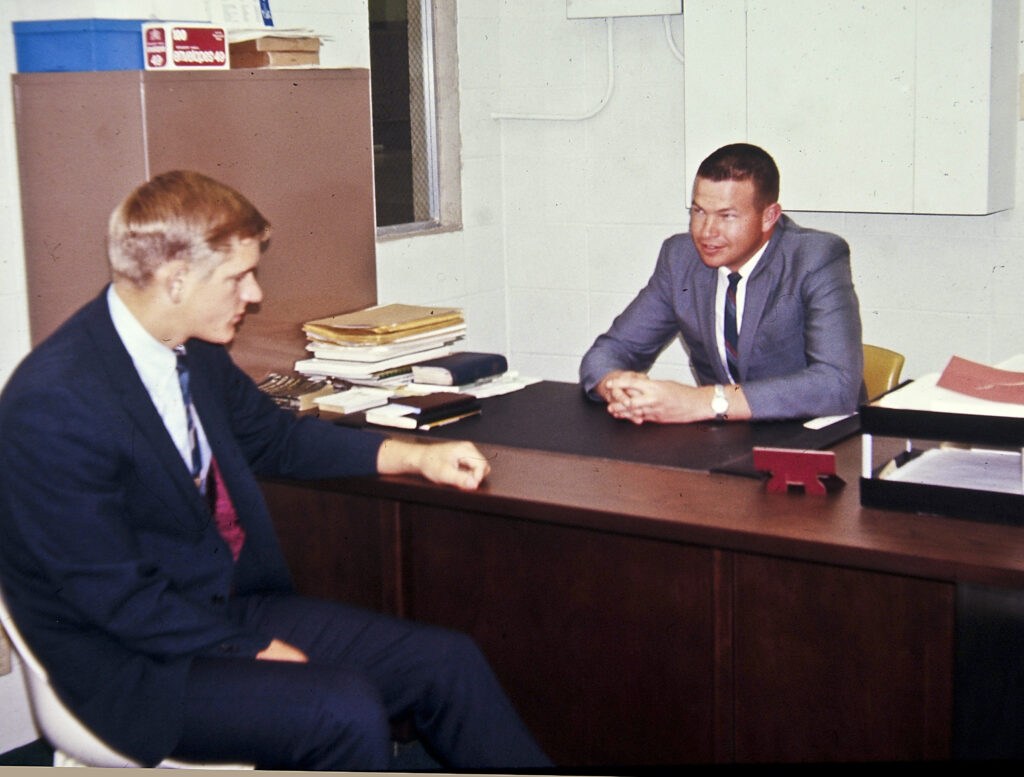
Reese could have panicked due to the challenges he faced at LABC. Instead, he decided to make the most of the opportunity and trust the Lord with the results.
Ronald Lee Reese was born in Bellbrook, Ohio, in 1938. “Pete” was a nickname his father gave him. The moniker stuck.
Growing up, Pete lived on a farm and distinguished himself in athletics. He was a self-proclaimed “mama’s boy,” choosing to play college basketball at nearby Cedarville, where he remains in the top-10 of the Yellow Jackets’ all-time scoring list.
After graduating in 1960, Reese moved to Flint, Michigan, and worked as a teacher and junior high coach. He also earned a master’s degree in education from Eastern Michigan University.
In 1965, he received a phone call that changed his life.
Dr. John Dunkin, LABC’s president, had heard of Reese through a mutual acquaintance. He wanted the 26-year-old to be LABC’s athletic director, basketball coach, and chair of the physical education department. Reese would also be dean of men — supervising and living with the male population of Hotchkiss Hall.
“I don’t even know what goes on in a dormitory,” Reese, who lived at home during his time at Cedarville, told Dunkin.
“It won’t take you long to find out,” the president replied.
Reese and his wife, Joyce, prayed over the decision and felt called to California. “I was young and naive,” Reese says. “The only thing I knew was that this was what God wanted us to do.”
Three weeks after the birth of their second child, Pete and Joyce hooked a U-Haul onto the back of a Chevy Impala and set off for LABC — sight unseen. Seven days and 2,000 miles later, they arrived, exhausted, in Newhall.
LABC wasn’t what Reese had envisioned. He knew there wasn’t a basketball gym; the Gideons, as the men’s basketball team was called at the time, practiced on a slab of concrete on the east side of campus. But based on a photo he’d seen, Reese expected a beautiful baseball diamond. That pristine field, in fact, belonged to nearby Hart High.
Instead, the land destined to be LABC’s field (later called Pete Reese Field) was covered in trees and brush, and the school’s athletic equipment was likewise uninspiring. “There was a baseball bat and a few balls,” Reese says, “and that was that.”
Reese could have panicked. Instead, he was thankful for having made the jump from coaching middle-schoolers to college athletes in a single bound. He decided to make the most of the opportunity and trust the Lord with the results.
A local newspaper, The Signal, gave Reese an early vote of confidence. An article from Oct. 28, 1965 reads, “(Reese) intends to make a baseball field on the open ground across from the school campus, and from the sincerity with which he speaks, he will succeed in whatever he attempts.”
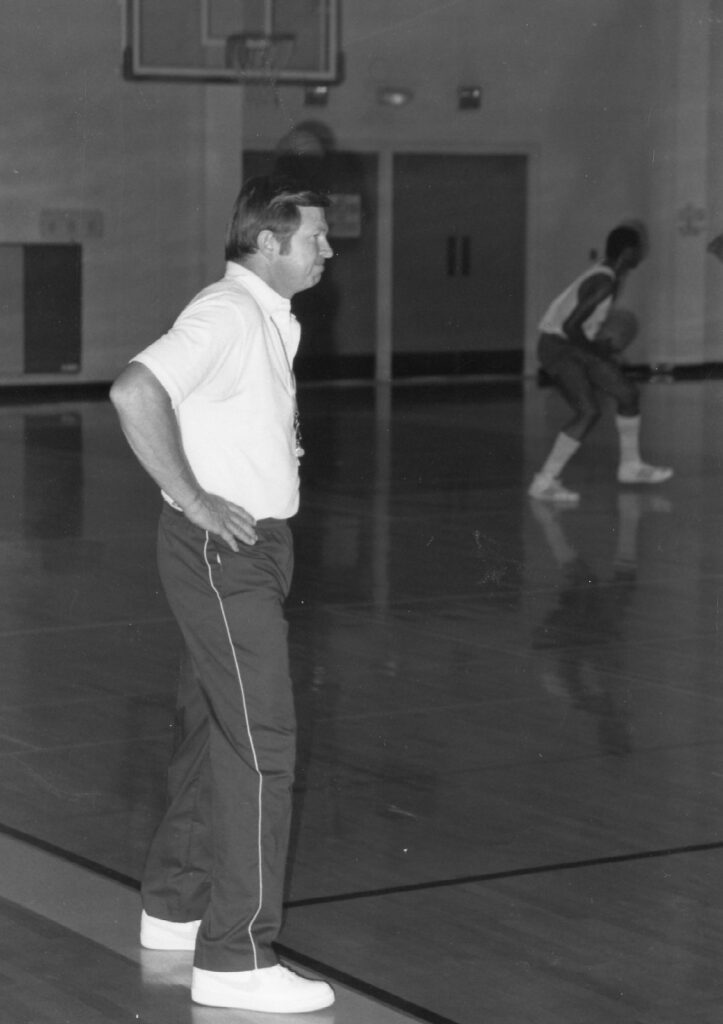
Reese was a fierce competitor. But he was even more passionate about shaping men of Christlike character.
Reese wasn’t alone in his efforts at LABC.
Joyce participated in just about everything, even when that meant picking rocks off the athletic field or painting every room in Hotchkiss Hall. Reese also relied heavily on retired-Navy-sailor-turned-maintenance-worker Ray Floch. The man — ubiquitously known as “Doc Floch” — was invaluable.
So too was Reese’s farming background.
When he arrived, the athletic field needed clearing, and after that was accomplished, he could see that the field’s soil wasn’t ideal for planting grass. He knew where to look for help.
Back then, Placerita Canyon was home to a large dairy farm, so Reese asked the owner for manure. Asked whether he knew how to operate a tractor, Reese assured the man that the equipment was in good hands. “I was basically born on a tractor,” says Reese, who proceeded to move 125 loads of cow dung onto a field he was later responsible for mowing and watering.
In the early years, Reese coached every sport LABC offered. At one point, he coached varsity and junior varsity basketball, leaving JV games early to prepare for the main event.
Eventually, he hired additional coaches, but there wasn’t much money to pay them or to use for scholarships. Because of the modest budget, the product on the court and the field wasn’t always what it could have been and Reese always had to be flexible.
One year, he planned a basketball road trip to Washington state. He budgeted 60 cents per gallon for gas, according to The Signal, but when petrol prices rose to $1.10, Reese was forced to leave several players at home. “We feel we do a pretty good job with our program,” Reese told The Signal. “But you’d always like to have more (money).”
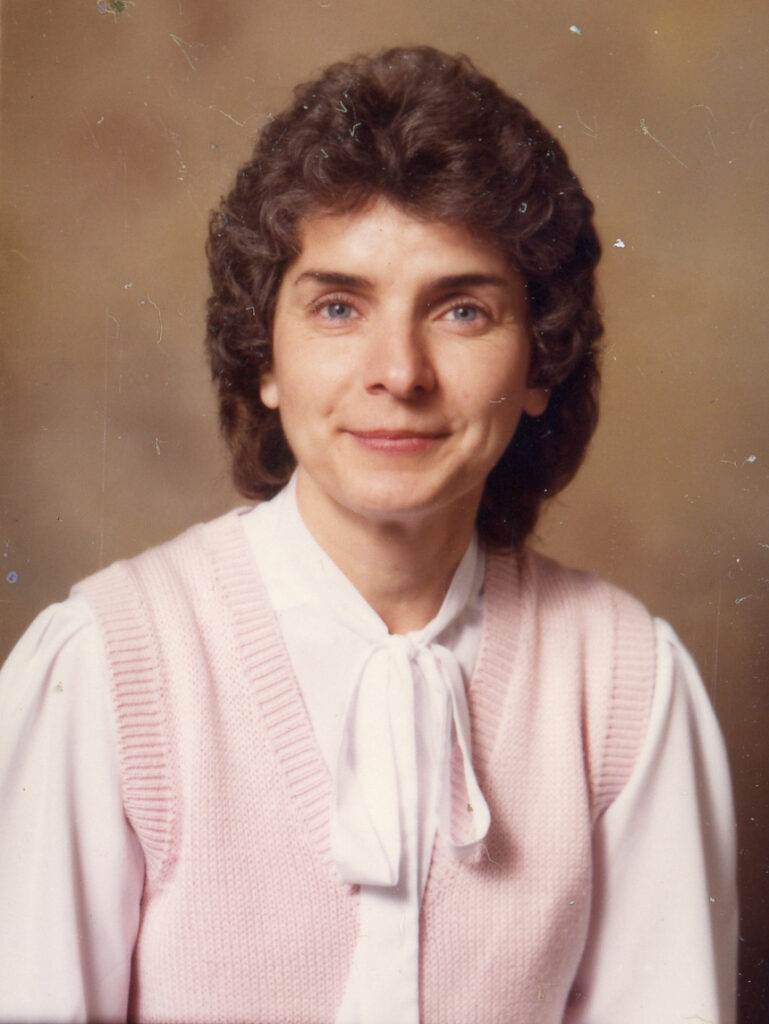
Joyce Reese helped her husband with all kinds of tasks at LABC, even when that meant picking rocks off the athletic field.
If Reese needed tangible proof that the athletic department was making progress, it came in 1967. That year, LABC used a large donation from chicken farmer Robert Bross to build one of the finest small school gyms in California. “Mr. Bross was such a gracious fella,” Reese says. “I remember telling him, ‘Mr. Bross, we are so grateful. As long as I live, we will take care of that gym.’”
Men’s basketball won its first real home game by 65 points, going on to claim the 1967-68 Golden State Athletic Association championship. Reese’s Mustangs repeated as champions the following year, averaging more than 100 points per game.
In 1970, Reese guided men’s soccer to an undefeated season. And by 1985, LABC’s once-tiny athletic department offered men’s soccer, basketball, and baseball; women’s basketball, volleyball, and softball; and cross country for both genders.
In 1994, The Signal ranked Reese No. 9 on its list of Santa Clarita Valley Sports Legends — three spots ahead of former Major League Baseball player Todd Zeile. And in 2004, Reese was a charter member of TMU’s Hall of Honor.
Nearly six decades after he arrived in Newhall, Reese’s biography on TMU’s athletics website just about says it all:
“Everything enjoyed by coaches and athletes today at The Master’s University can be attributed in some way to this man and his work.”
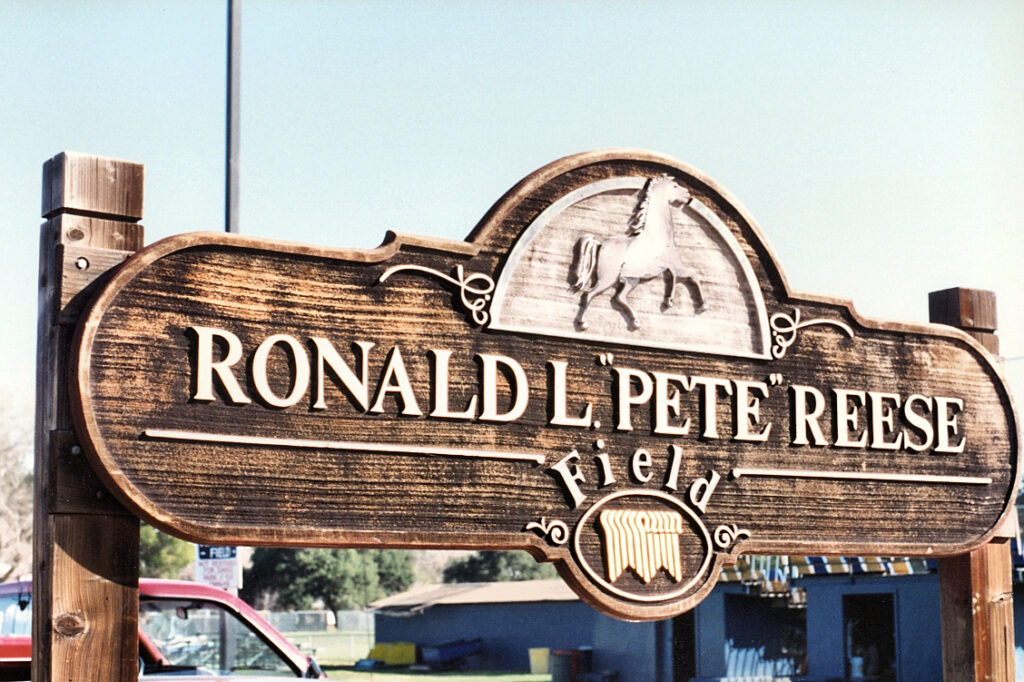
The school’s athletic field was eventually named after Reese, and, although the playing surface now consists of turf instead of grass, the field continues to be the home of TMU baseball and soccer.
At times, Reese’s deep midwestern drawl intimidated folks — but that rarely lasted. “I think sometimes people didn’t know how to take him when they first met him,” says Kathleen Thomson (Simon), a three-sport athlete at LABC in the late 70s. “They were surprised at how warm he was, that he was kind of a big teddy bear.”
To be sure, Reese was a fierce competitor; but he was even more passionate about molding student-athletes of Christlike character. He led an athletic gospel team at LABC that visited churches, sharing testimonies and promoting the school, and he refused to let losing impact the way he treated his players — the relationships were just too important.
In truth, Reese would do just about anything for people.
One year at Christmas, Pete and Joyce offered to drive a freshman athlete to LAX, exiting the freeway to find themselves faced with miles of traffic.
Having made little progress, and with take-off rapidly approaching, Pete decided to pivot. “We better take the luggage and go,” he said, handing the keys to Joyce, exiting the van, and running alongside the student the rest of the way. The student — Gregg Frazer, now a political studies professor at TMU — reached his gate just in time.
It’s no wonder that in 1969, students dedicated an edition of “Conquest,” LABC’s yearbook, to Reese. The dedication page reads in part, “We have seen a spiritual growth in the lives of each student, but especially those who work closely with him.”
Jeff Hallman, an LABC basketball player from 1979 to 1982, met often with Reese in those days to talk about Hallman’s coaching aspirations. Over time, Hallman also learned by watching: He saw the sweat equity his mentor put into LABC’s facilities and the way Reese never separated the athletic department’s goals from the school’s overarching mission.
“He had a proper perspective on life,” Hallman says. “He understood how basketball fits in and how you do all things to God’s glory.”
Hallman still calls Reese each month. The men have also connected in Ohio on several occasions, always staying up past midnight to talk and laugh about the past.
It’s relationships like this that signal to Reese that his step of faith in 1965 was divinely appointed.
“Sometimes it takes a while to understand what it’s all been worth,” Reese says now. “You make the deposits. You do the best you can.
“Sometimes we think that we weren’t accomplishing much, but that’s what I call delayed dividends. We’ve made investments that we don’t really understand the results of until years later.”
Learn more about TMU Athletics at gomustangs.com.

The Master’s University and Seminary admit students of any race, color, national and ethnic origin to all the rights, privileges, programs, and activities generally accorded or made available to students at the school. It does not discriminate on the basis of race, color, national and ethnic origin in the administration of its educational policies, admissions policies, scholarship and loan programs, and athletic and other school-administered programs.
21726 Placerita Canyon Road
Santa Clarita, CA 91321
1-800-568-6248
© 2025 The Master’s University Privacy Policy Copyright Info
| Cookie | Duration | Description |
|---|---|---|
| cookielawinfo-checkbox-analytics | 11 months | This cookie is set by GDPR Cookie Consent plugin. The cookie is used to store the user consent for the cookies in the category "Analytics". |
| cookielawinfo-checkbox-functional | 11 months | The cookie is set by GDPR cookie consent to record the user consent for the cookies in the category "Functional". |
| cookielawinfo-checkbox-necessary | 11 months | This cookie is set by GDPR Cookie Consent plugin. The cookies is used to store the user consent for the cookies in the category "Necessary". |
| cookielawinfo-checkbox-others | 11 months | This cookie is set by GDPR Cookie Consent plugin. The cookie is used to store the user consent for the cookies in the category "Other. |
| cookielawinfo-checkbox-performance | 11 months | This cookie is set by GDPR Cookie Consent plugin. The cookie is used to store the user consent for the cookies in the category "Performance". |
| viewed_cookie_policy | 11 months | The cookie is set by the GDPR Cookie Consent plugin and is used to store whether or not user has consented to the use of cookies. It does not store any personal data. |
Notifications